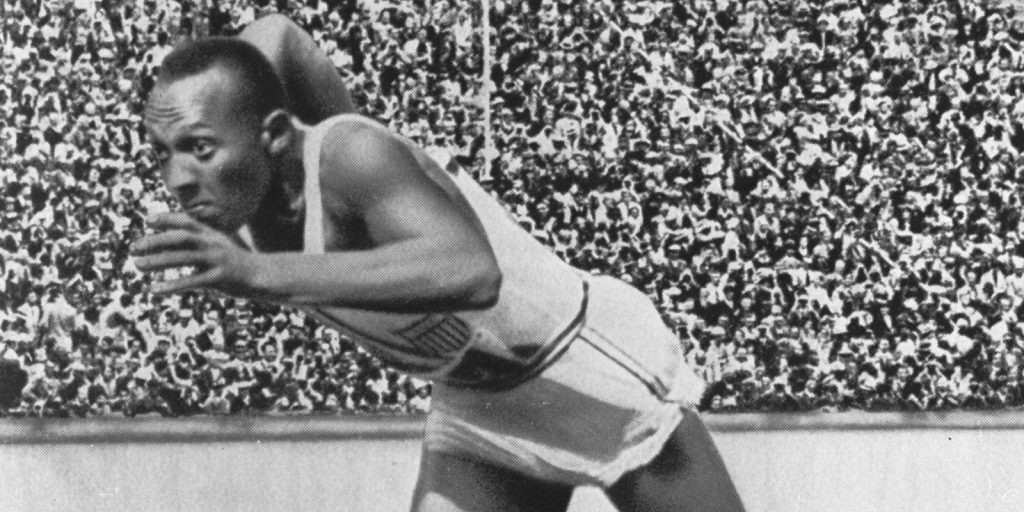
What Happened On March 28th?
March 28th, 1990, was a special occasion not only for Jesse Owens but also for the fight for racial equality in the United States. On that day, Owens, an American athlete who had achieved phenomenal victories at the 1936 Berlin Olympics, finally received the prestigious Congressional Gold Medal.
This award, the highest civilian honor bestowed by the United States Congress, served as a long-overdue recognition of Owens’ achievements and a powerful symbol of progress in a nation still grappling with racial prejudice.
How He Defied All Odds
Owens’ Olympic performance in 1936 remains etched in sporting history. Held in Nazi Germany, the Berlin Olympics were intended by Adolf Hitler to showcase Aryan supremacy. However, Owens, a young African-American man, shattered Hitler’s propaganda machine with his dominant victories.
Nevertheless, he took four gold medals in the 100-meter dash, 200-meter dash, long jump, and 4×100-meter relay, silencing a crowd that had expected German athletes to dominate. His performance was a stunning display of athletic brilliance and a powerful rebuttal to Nazi ideology.
Growing Up Was Not Easy
Owens’ story extends far beyond the four gold medals he earned in Berlin. Born into poverty in Alabama in 1913, he faced racial discrimination throughout his life. He overcame segregation in his hometown and financial hardship to excel in athletics, demonstrating exceptional talent from a young age.
His victories at the Olympics, however, were not met with the hero’s welcome he deserved upon returning to a segregated America. President Franklin D. Roosevelt, preoccupied with the looming war, did not invite Owens to the White House. Despite these setbacks, Owens never wavered in his pride and dignity. He continued to compete and advocate for racial equality throughout his career.
What You Didn’t Know About Jesse Owens
Although Owens is most famous for his sprinting prowess, his first athletic love was the long jump. He reportedly learned the technique by attempting to jump over a horseshoe placed in a dirt field.
Owens received an athletic scholarship to attend Ohio State University, where he honed his skills under legendary coach Larry Snyder. However, to support himself financially, he often worked long hours as a janitor on campus.
Owens wasn’t just a gifted athlete; he was also a talented musician. He played the trumpet and saxophone, even forming his own band after his athletic career ended.
During World War II, Owens served in the U.S. Army, entertaining troops with his athletic skills and musical talents. He also continued to advocate for racial equality, working with the USO (United Service Organizations) to promote diversity and inclusion within the military.
54-Years Later
The Congressional Gold Medal awarded to Owens represented a national acknowledgment of his extraordinary athletic achievements and a public apology for the lack of recognition he received earlier.
President George H.W. Bush, in his speech during the ceremony, stated, “We remember Jesse Owens not only as the first athlete in Olympic history to win four gold medals, but for something more important. He stood up for the value of human dignity and human equality at a time when those values were under great assault”.
Owens became a symbol of hope and inspiration for minorities struggling against racial prejudice, inspiring black athletes such as Arthur Ashe in times of difficulty and oppression.
Jesse Owens’ story is one that keeps hitting you right in the feels, even today. He faced a ton of obstacles, but he just wouldn’t give up. That drive to be the best, along with his fight for fairness, is what makes him such a legend.
The Congressional Gold Medal was long overdue, but it showed how important his achievements were, not just in sports, but in the fight for equal rights. Things have definitely gotten better since Owens’ time, but the work’s not done yet. His story is a powerful reminder that we all have a voice, and we should use it to fight for what’s right. Let’s keep pushing for a world where everyone gets a fair shot!
What Do You Think?
So, was there anything new that you learned?
If you had the opportunity to talk to Jesse Owens today, what would you ask Jim or tell him?
Thanks everyone!
See you shortly!

